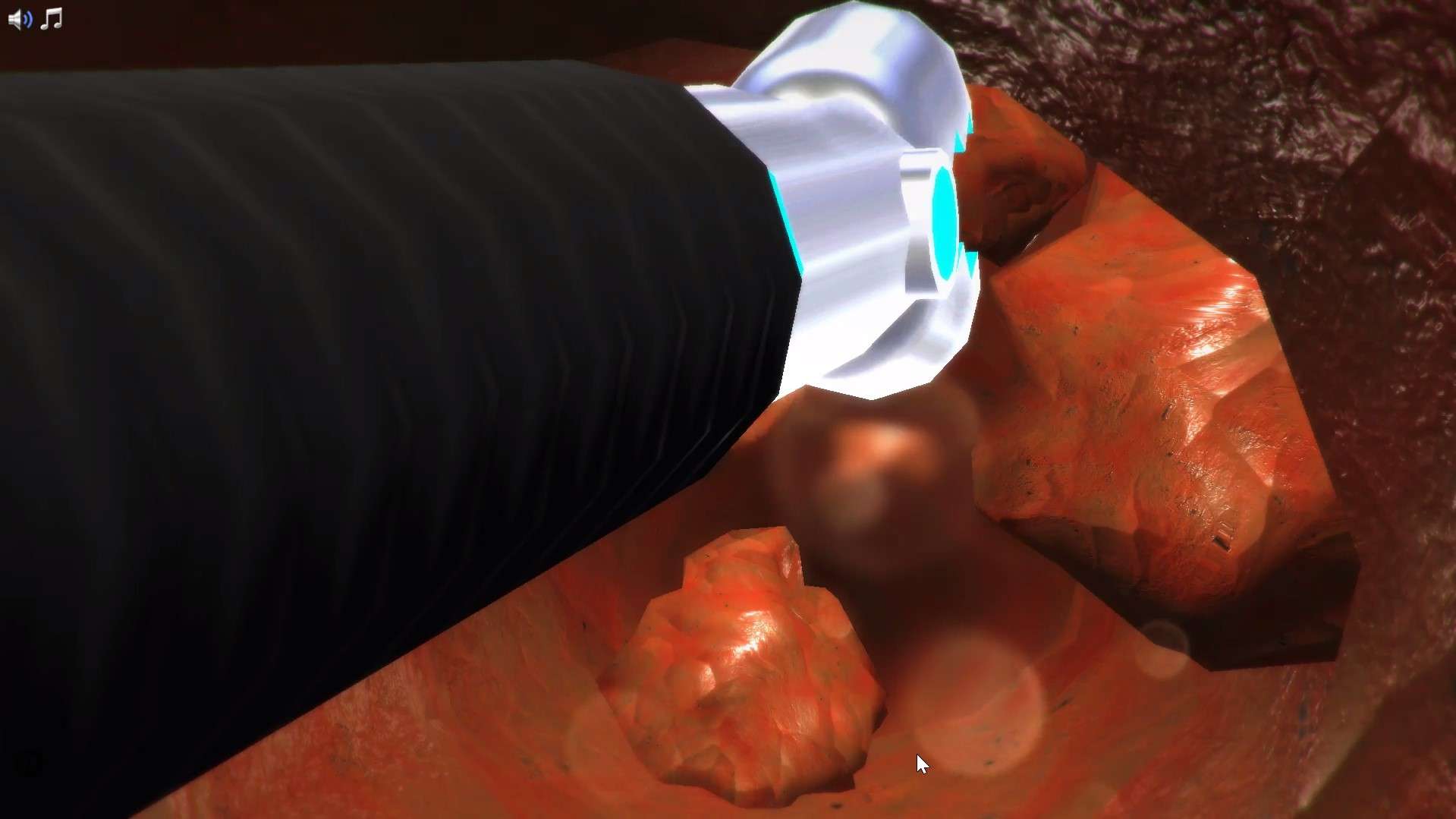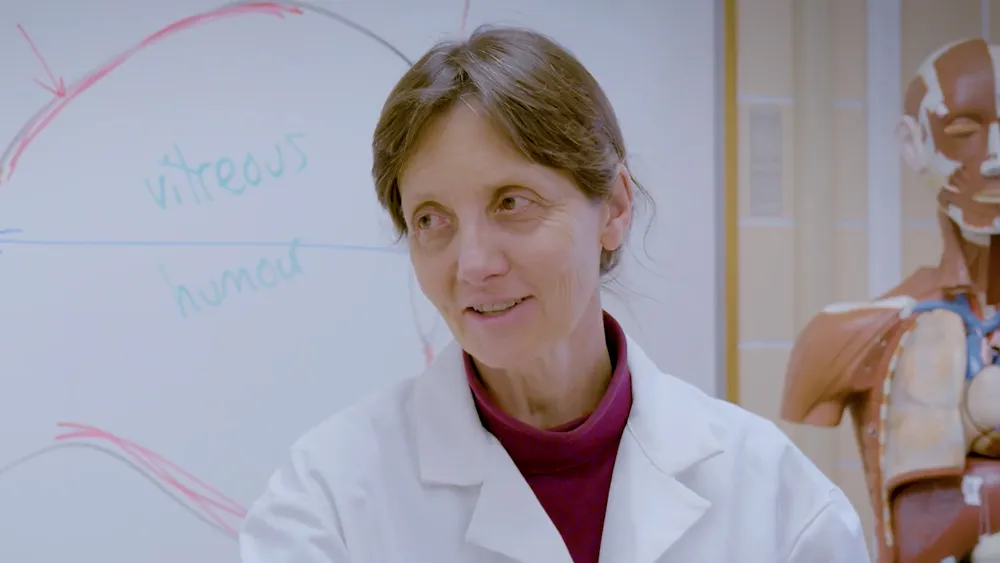Heading 1
Heading 2
Heading 3
Heading 4
Heading 5
Heading 6
Lorem ipsum dolor sit amet, consectetur adipiscing elit, sed do eiusmod tempor incididunt ut labore et dolore magna aliqua. Ut enim ad minim veniam, quis nostrud exercitation ullamco laboris nisi ut aliquip ex ea commodo consequat. Duis aute irure dolor in reprehenderit in voluptate velit esse cillum dolore eu fugiat nulla pariatur.
Block quote
Ordered list
- Item 1
- Item 2
- Item 3
Unordered list
- Item A
- Item B
- Item C
Bold text
Emphasis
Superscript
Subscript
About This Simulation
Assist in a biopsy on a cancer patient and learn how to prepare the sample for mass spectrometry by extracting its phosphopeptides. Will you be able to identify the cancer stage of the patient by looking at the phosphorylation pattern?
Learning Objectives
- Understand the correlation between phosphorylation and cancer
- Prepare a biopsy sample for mass spectrometry
About This Simulation
Lab Techniques
- Phosphopeptide enrichment
- Protein purification
- Enzymatic digestion
- Cell lysis
Related Standards
- No direct alignment
- No direct alignment
- No direct alignment
Learn More About This Simulation
Take action! Cancer is on the rise, and you can help with diagnosis and treatment. In the Cancer Sample Preparation for Mass Spectrometry simulation, you will assist doctors by determining the cancer stage of a patient diagnosed with colon cancer. This is the first simulation in the Mass Spectrometry series.
Prepare the biopsy
Join doctors in the hospital and enter an immersive animation to see how we perform a colorectal cancer biopsy. Once back in the lab, your mission will be to extract proteins from the tumor sample. Find the equipment you need in the lab to lyse the tumor cells, denature the proteins, and perform phosphopeptide enrichment, in order to prepare the sample for mass spectrometry.
Explore the molecules
Use the holotable to observe detailed 3D models of the molecules involved in phosphorylation. Get an understanding of the molecular principles underlying the biopsy preparation and how the phosphorylation pattern relates to cancer.
Interpret your findings
In the end, you will analyze the results from the mass spectrometry on a graph. Will you be able to help guide the patient’s treatment by identifying their cancer stage?
For Science Programs Providing a Learning Advantage
Boost STEM Pass Rates
Boost Learning with Fun
75% of students show high engagement and improved grades with Labster
Discover Simulations That Match Your Syllabus
Easily bolster your learning objectives with relevant, interactive content
Place Students in the Shoes of Real Scientists
Practice a lab procedure or visualize theory through narrative-driven scenarios


FAQs
Find answers to frequently asked questions.
Heading 1
Heading 2
Heading 3
Heading 4
Heading 5
Heading 6
Lorem ipsum dolor sit amet, consectetur adipiscing elit, sed do eiusmod tempor incididunt ut labore et dolore magna aliqua. Ut enim ad minim veniam, quis nostrud exercitation ullamco laboris nisi ut aliquip ex ea commodo consequat. Duis aute irure dolor in reprehenderit in voluptate velit esse cillum dolore eu fugiat nulla pariatur.
Block quote
Ordered list
- Item 1
- Item 2
- Item 3
Unordered list
- Item A
- Item B
- Item C
Bold text
Emphasis
Superscript
Subscript
A Labster virtual lab is an interactive, multimedia assignment that students access right from their computers. Many Labster virtual labs prepare students for success in college by introducing foundational knowledge using multimedia visualizations that make it easier to understand complex concepts. Other Labster virtual labs prepare learners for careers in STEM labs by giving them realistic practice on lab techniques and procedures.
Labster’s virtual lab simulations are created by scientists and designed to maximize engagement and interactivity. Unlike watching a video or reading a textbook, Labster virtual labs are interactive. To make progress, students must think critically and solve a real-world problem. We believe that learning by doing makes STEM stick.
Yes, Labster is compatible with all major LMS (Learning Management Systems) including Blackboard, Canvas, D2L, Moodle, and many others. Students can access Labster like any other assignment. If your institution does not choose an LMS integration, students will log into Labster’s Course Manager once they have an account created. Your institution will decide which is the best access method.
Labster is available for purchase by instructors, faculty, and administrators at education institutions. Purchasing our starter package, Labster Explorer, can be done using a credit card if you are located in the USA, Canada, or Mexico. If you are outside of North America or are choosing a higher plan, please speak with a Labster sales representative. Compare plans.
Labster supports a wide range of STEM courses at the high school, college, and university level across fields in biology, chemistry, physics, and health sciences. You can identify topics for your courses by searching our Content Catalog.


















